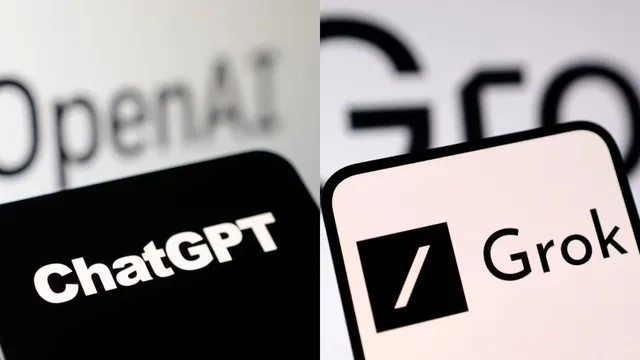- By Alex David
- Sun, 10 Aug 2025 02:51 PM (IST)
- Source:JND
OpenAI’s ChatGPT o3 beat Elon Musk’s Grok 4 in the final of a three-day Kaggle tournament that asked a simple question with big implications: can general-purpose large language models play chess consistently under pressure? Eight multipurpose LLMs — not specialised chess engines — faced off under standard chess rules. What unfolded was less about flawless play and more about how these models plan, adapt, and fail when games turn adversarial. Grok 4 dominated early rounds but collapsed in the final; o3 delivered steadier, fewer-catastrophe play and claimed the title. The result doesn’t crown a new chess champion so much as reveal how LLMs handle sequential reasoning and tactical stress — a useful benchmark for real-world tasks that demand long-term planning.
Quick facts: the tournament at a glance
Item | Detail |
Host | Kaggle (three-day event) |
Contenders | 8 general-purpose LLMs (OpenAI, xAI, Google, Anthropic, DeepSeek, Moonshot AI, others) |
Winner | ChatGPT o3 (OpenAI) |
Runner-up | Grok 4 (xAI) |
Third place | Gemini (Google) |
Tournament format and contenders
Organisers tested generalist LLMs on standard chess matches, deliberately avoiding dedicated chess engines so the focus stayed on reasoning and planning embedded in broad training. The field included major industry models and some Chinese developers’ entries. Matches were live-commentated, giving observers a clear window into move-by-move decisions and tactical breakdowns.
The final — where Grok 4 faltered and o3 held firm
Grok 4 looked unstoppable through the semis, but the final exposed a brittle underbelly. Commentators flagged multiple tactical blunders — notably repeated queen losses — that swung momentum toward o3. Chess.com writer Pedro Pinhata summed it up: “Up until the semi-finals, it seemed like nothing would be able to stop Grok 4.” Grandmaster Hikaru Nakamura, on the broadcast, pointed out the contrast in error rates: “Grok made so many mistakes in these games, but OpenAI did not.” In short, Grok flashed high capability but folded when consistent precision mattered.
ALSO READ: Samsung Galaxy Z Fold 6 At ₹52,000 Discount On Flipkart: Grab The Deal Now
Why this matters beyond the board
Chess is a compact test of sequential decision-making. When an LLM blunders at critical junctures, it exposes limits in planning, memory, or error recovery — problems that translate directly into real-world failures for tasks such as multi-step coding, long-form reasoning, or negotiation. The Kaggle format shows researchers where models are brittle and where they’re robust.
What comes next
Expect more public stress-tests: variants that allow tool use, longer match series, or adversarial opponents designed to probe specific weaknesses. The community will use these results to refine training signals, routing, and safety checks.
Kaggle’s LLM chess tournament didn’t produce a definitive “best AI chess player,” but it did deliver something more useful: diagnostic data. ChatGPT o3’s victory shows that some generalist LLMs can sustain strategy and avoid catastrophic errors; Grok 4’s collapse shows how quickly raw capability can evaporate under pressure. For researchers and product teams, these matchups are a practical way to stress-test planning and robustness — and they’ll keep shaping how LLMs are trained and evaluated for sequential, high-stakes tasks.

